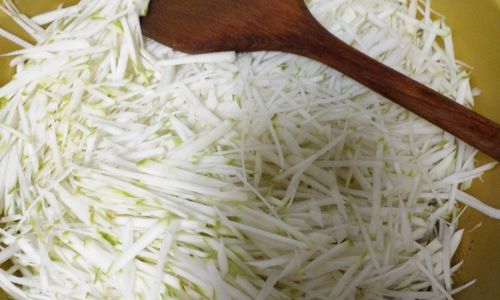Introduction

Fish, a staple in countless cuisines worldwide, offers a myriad of nutritional benefits and culinary delights. Its delicate flavor and tender texture make it a favorite among seafood enthusiasts. However, achieving perfectly marinated fish fillets that are both silky and tender can be a challenge, especially for home cooks. This comprehensive guide aims to demystify the process and provide you with step-by-step instructions, tips, and tricks to ensure your fish fillets are the highlight of any meal.
Understanding Fish Fillets
Before diving into the marinating process, it’s crucial to understand the basics of fish fillets. Fish fillets refer to the boneless, skinless (or sometimes skin-on) portions of fish that are ideal for cooking methods such as grilling, frying, baking, or steaming. Different types of fish have varying textures and flavors, which influence how they should be marinated and cooked.
For instance, firm-fleshed fish like salmon, halibut, and swordfish can hold up well to stronger marinades and longer marinating times. Flaky fish like sole, tilapia, and cod require gentler treatments to avoid over-soaking and becoming mushy.
The Importance of Marinating
Marinating fish fillets serves several purposes:
- Flavor Enhancement: Marinades infuse the fish with additional flavors, transforming a simple piece of protein into a flavorful masterpiece.
- Tenderization: Acidic components in marinades, such as vinegar, lemon juice, or wine, help break down proteins, making the fish more tender.
- Moisture Retention: Marinades can help the fish retain moisture during cooking, ensuring a juicy, succulent final product.
- Color and Appearance: Marinades can add a glossy finish and enhance the overall visual appeal of the dish.
Choosing the Right Marinade Ingredients
The key to a successful marinade lies in balancing flavors and textures. Here are some essential ingredients and their roles:
-
Acids: Vinegar, lemon juice, lime juice, and wine are common acids that tenderize the fish and add a tangy flavor. Use them sparingly with delicate fish to avoid over-tenderizing.
-
Oils: Olive oil, vegetable oil, or sesame oil not only add richness but also help the marinade adhere to the fish. They contribute to a moist cooking environment.
-
Aromatics: Garlic, ginger, shallots, and onions add depth and complexity to the marinade. They also provide natural antioxidants that can help preserve the fish.
-
Herbs and Spices: Fresh herbs like cilantro, parsley, dill, or thyme, along with spices such as paprika, cumin, and black pepper, offer a burst of fresh flavor and color.
-
Sweeteners: Honey, sugar, or maple syrup can balance out the acidity and add a hint of sweetness. Use them judiciously to avoid overpowering the fish’s natural flavor.

-
Liquids: Soy sauce, fish sauce, or mirin (a sweet Japanese rice wine) can add umami and depth to the marinade.
Marinating Techniques
-
Basic Marinade Preparation
- Combine your chosen ingredients in a bowl, whisking until well blended. Adjust seasoning to taste.
- Remember, the strength of flavors will intensify as the fish marinates, so start with less intense ingredients and adjust as needed.
-
Marinating Time
- The general rule is 30 minutes to 2 hours for delicate fish and up to 4 hours for firmer varieties. Over-marinating can lead to a mushy texture, especially with flaky fish.
- For best results, marinate in the refrigerator to slow down the enzymatic action that can cause texture degradation.
-
Marinating Methods
- Zip-Top Bag Method: Place the fish fillets in a zip-top plastic bag, pour in the marinade, and seal, removing as much air as possible. This method ensures even distribution and minimal marinade loss.
- Shallow Dish Method: Lay the fish fillets in a single layer in a shallow dish, pour the marinade over, and cover with plastic wrap or aluminum foil.
- Vacuum Sealing: For longer marinating times or when you want to ensure no marinade is lost, use a vacuum sealer.
Marinating for Specific Textures
Achieving a silky and tender texture requires a nuanced approach based on the type of fish and desired final dish.
-
For Silky Texture
- Use a combination of gentle acids like rice vinegar or mild citrus juices.
- Incorporate dairy products like yogurt or buttermilk, which contain enzymes that tenderize the fish without overcooking it.
- Marinate for shorter periods to avoid breaking down the fish’s structure too much.
-
For Tender Texture
- Opt for stronger acids like white wine vinegar or apple cider vinegar for firmer fish.
- Add tenderizing agents like papaya or pineapple juice, which contain natural enzymes that break down proteins.
- Use a combination of physical tenderization techniques, such as light pounding with a meat mallet, before marinating.
Special Tips for Perfect Marinating
-
Pat Dry Before Marinating: Remove excess moisture from the fish fillets using paper towels. This ensures the marinade can penetrate the fish more effectively.
-
Use Fresh Ingredients: Always use fresh herbs, spices, and citrus juices for the best flavor. Dried herbs and concentrated juices can overpower the delicate taste of fish.
-
Marinate in Single Layers: Ensure the fish fillets are in a single layer to promote even marinade penetration. Stacking can lead to uneven marinating and potential sogginess.

-
Rotate the Fish: If marinating for an extended period, flip the fish fillets halfway through to ensure even distribution of the marinade.
-
Don’t Discard the Marinade: After marinating, reserve the marinade for basting during cooking or as a sauce base. Just ensure it hasn’t been in direct contact with raw fish for too long to avoid food safety risks.
Cooking After Marinating
The cooking method you choose can significantly impact the final texture and flavor of your fish fillets. Here are some tips for cooking marinated fish:
-
Grilling: Preheat the grill to medium-high heat. Oil the grates to prevent sticking. Grill the fish fillets for about 3-4 minutes per side, or until they have nice grill marks and are cooked through. Basting with reserved marinade can add extra flavor.
-
Pan-Searing: Heat a small amount of oil in a non-stick skillet over medium-high heat. Sear the fish fillets for 2-3 minutes per side, until golden brown and cooked through. Avoid overcrowding the pan to ensure even cooking.
-
Baking: Preheat the oven to 375°F (190°C). Place the marinated fish fillets on a baking sheet lined with parchment paper. Bake for 10-15 minutes, or until opaque and cooked through. You can brush with reserved marinade halfway through cooking.
-
Steaming: Set up a steamer basket over simmering water. Place the marinated fish fillets in the basket and steam for about 5-7 minutes, or until cooked through. This method is particularly gentle and preserves the fish’s delicate texture.
Conclusion
Mastering the art of marinating fish fillets to achieve a silky and tender texture is a rewarding culinary endeavor. By understanding the properties of different fish types, selecting the right marinade ingredients, and employing proper marinating techniques, you can elevate your fish dishes to new heights. Remember, the key to success lies in balance, patience, and attention to detail. Happy cooking, and enjoy the delicious, tender fish fillets you’ve worked so hard to perfect!
This guide covers the essentials of marinating fish fillets for optimal texture and flavor, from understanding fish types and marinade ingredients to specific marinating techniques and cooking methods. By following these steps and tips, you’ll be well-equipped to create mouthwatering, silky, and tender fish dishes that will impress even the most discerning palate. Happy marinating and cooking!






0 comments